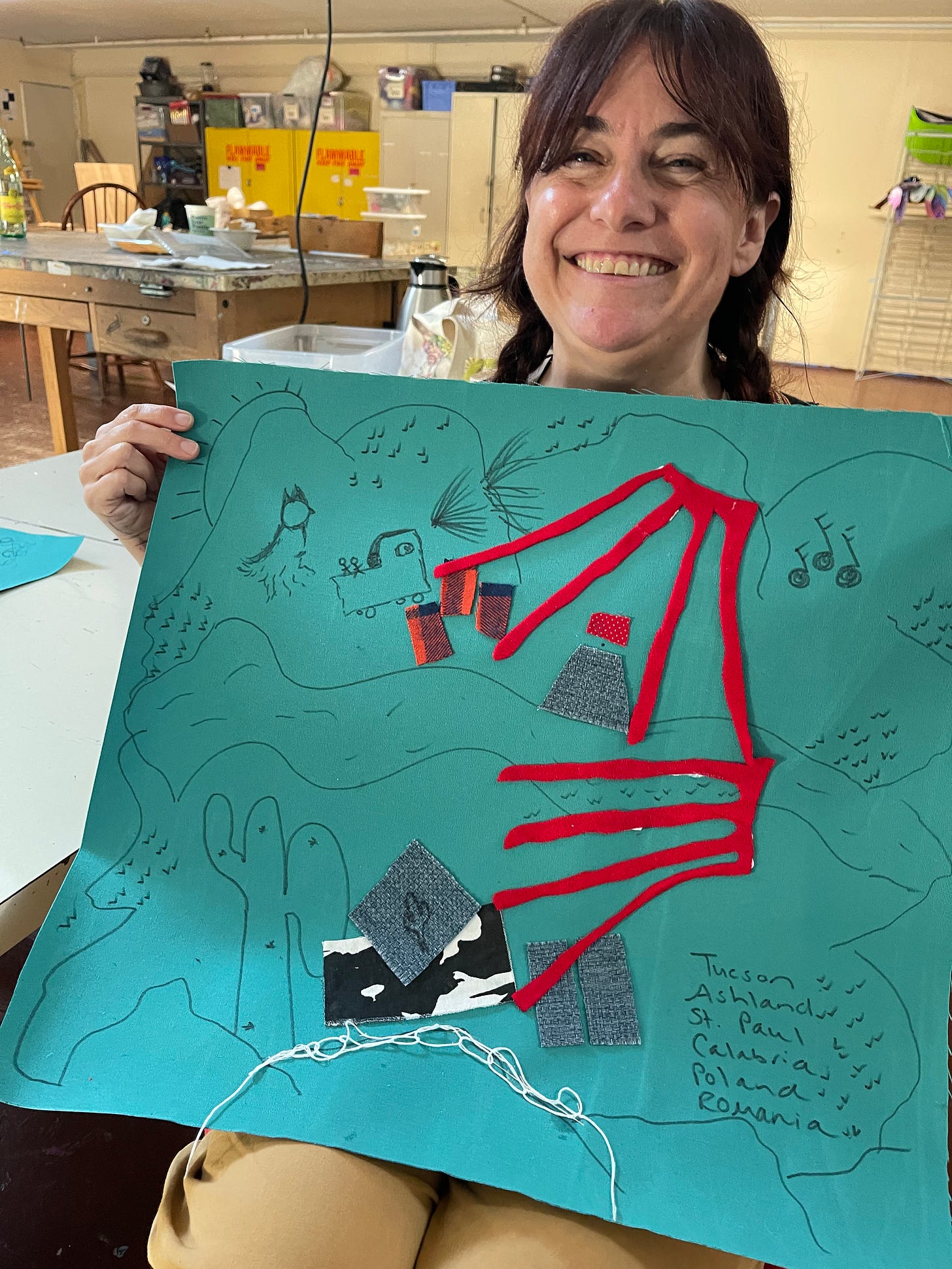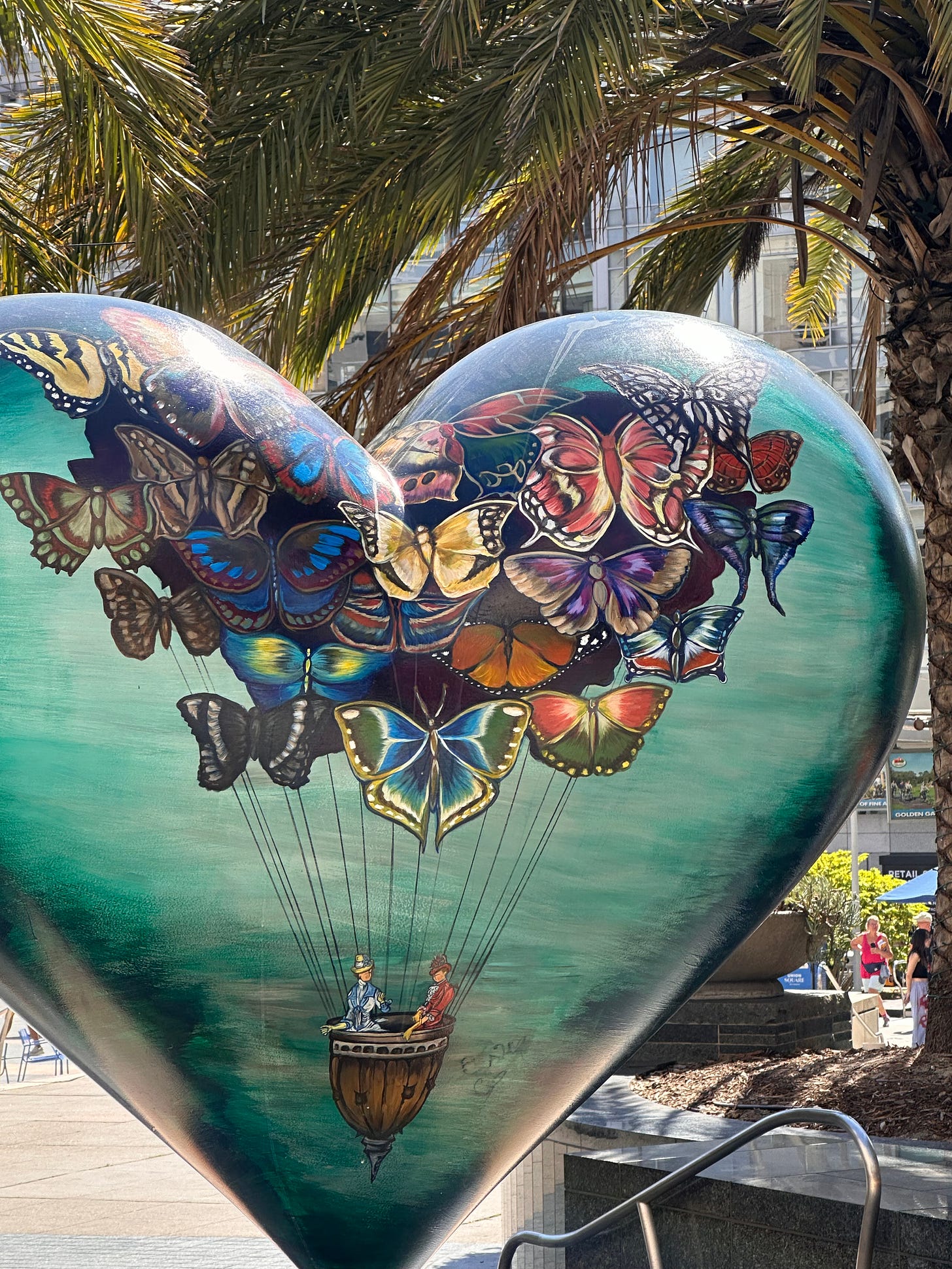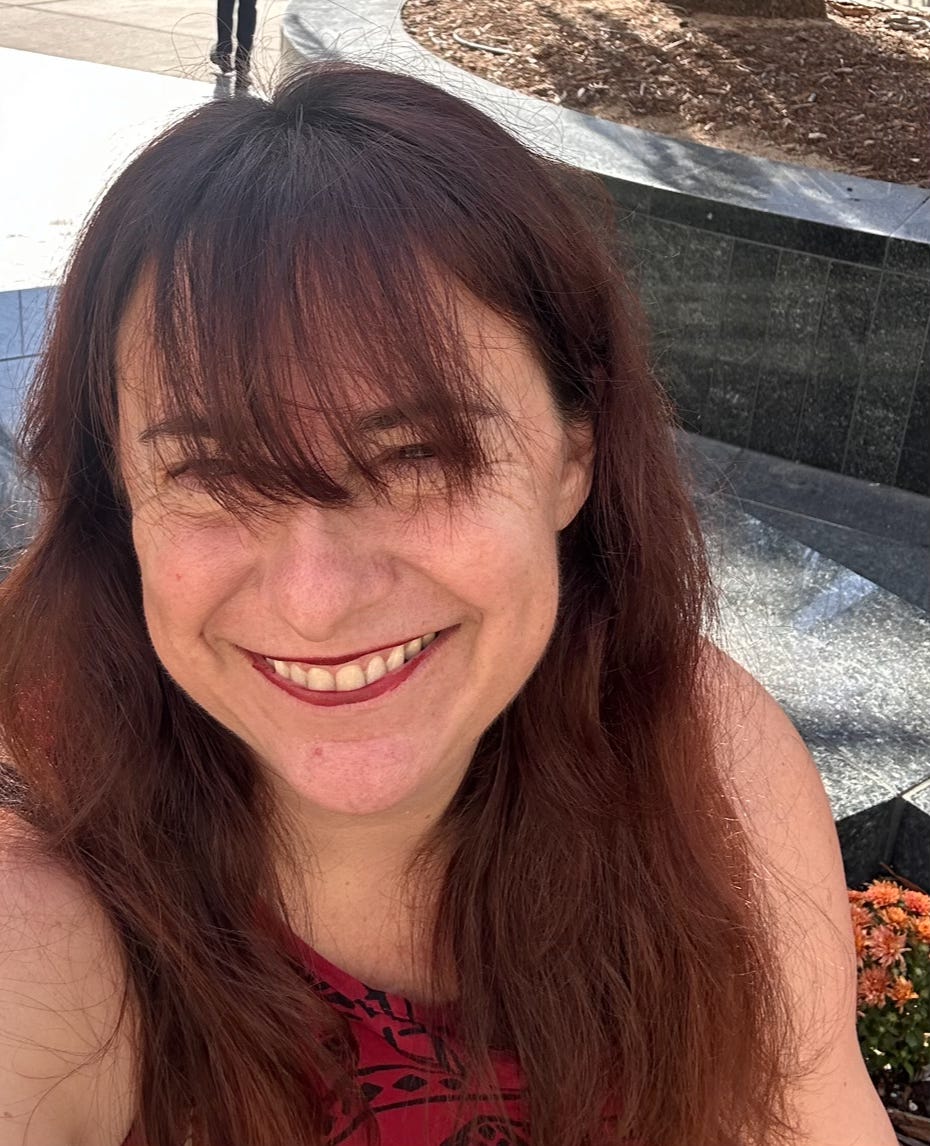November: Revealing A Return to the Self
And what to expect here in this newsletter for the month

If you’ve followed along here lately, then you know that I spent much of September and October “resetting.” In October, I primarily shared with you a variety of highly visual posts - visual interview responses from some amazing creatives and also a selection of my own visual art - which I saw as a reprieve from all of the words all of the time.
The space from my reset has helped me figure out some going-forward things in my creative life. The biggest overall takeaway has been:
It’s time to return to using your own voice, telling your own story, digging deep.

I’ve been thinking a lot about my most recently published book The Artist’s Mind. I loved doing the research and writing for that book. There are a lot of things I like about it and am proud of. But there was also something missing and I finally pinpointed it; it’s entirely biography without any autobiography. And that’s okay … but it’s not actually true to the core of my writing style.
(Arguably there is autobiography in there since the entire perspective of how each artist’s mental health and art intersected comes from me and my biases and beliefs. But there’s no “first person” and I reveal no authentic internal truths.)
Honestly, I think it makes sense that I had strayed away from the first person a bit. There are many reasons why but it mostly boils down to that we sometimes need to keep our inner thoughts internal for a time because we’re still working them out. My dad passed away a little less than two years ago and the year before that was rough with his illness and some COVID conflicts in my family and the return of my depression … I shared some of that while it was happening but I had no distance from it so the sharing was a specific limited kind of sharing.
And now I feel differently. If I were to write The Artist’s Mind again (spoiler: no timeline but I’m hinting at a next book in progress here) I would focus less on the individual artists and more about how I relate to them. Because ultimately the only truly unique and authentic story I have to tell is my own. So yes I love researching and writing about the way art and mental health intersected for Georgia O’Keeffe and Richard Dadd and Isa Genzken but I’m in a phase of wanting to more explicitly share why exactly it motivates me and how. Because I’ll only ever know a limited truth of their stories but I know a much bigger whole of my own.
When I look back at the books I’m most proud of, Crochet Saved My Life and Hook to Heal, I see that they combine the first person and the non-fiction, practical, storytelling, tips, etc. in a way that’s more genuine to who I am. Crochet Saved My Life begins with my story of healing through depression before it goes into the stories of the other women that I interviewed and the facts and information about the science of how crochet heals. Hook to Heal consists of ten chapters each with exercises for using crochet to heal/improve some area of life, and each chapter begins with my own story related to the chapter’s topic. These are far from perfect books and I’d do things differently with each of them if I wrote them today, but they are the books I’ve authored that I love the most and the “me” of it is why.
So, that’s the biggest thing I took away from my reset time. There were also lots of smaller things and practical/logistical things and I’ve done a lot of thinking about what I actually want my Substack newsletter to be and do and look like. The great thing is that it can be ever-changing and adaptable, it grows as I grow.
But that also means it’s gone through several iterations. In the process of looking at it, I realized that to someone who just showed up here today, it’s a bit of a chaotic mess. It’s organized by how my brain organizes (my art meets my own psychology) and that’s okay but there’s so much material here that it would definitely be helpful to have a different system of organization.
Specifically, I want to completely redo the Table of Contents so that it is easier to actually find things using it. In order to do that, I find that I need to create some new posts here that round up the things that each belong together. For example, I want to create a page for all of the essays about mental health in art history. They’re currently just an ever-growing list on that Table of Contents … but sometime this November, you’ll receive a newsletter in which they’re all linked to together on one concise page that summarizes and makes clear what they are. Then, eventually, when those are all complete, I can update the Table of Contents so that it’s all streamlined to go to that one roundup.
This is about more than just organization. It’s also giving me a chance to look back through all of the old writing and change what needs to be changed. I’ve gone back and forth with paywalling some of my work here and I’ve decided that I don’t want paywalls. So, as I go through these, I can remove all of the paywalls that I did put in at any given point in time.
I suppose all of this is to say that in preparing for the work that’s coming, I’m continuing my “reset / declutter/ organization” here in November so what you can expect for the month is:
A series of “roundup” articles that will help you better understand the different facets of work that appears here on Create Me Free and a chance to see some of the things that perhaps you missed in the least year and a half.
Hopefully some new visual interviews if I receive any new responses this month. Seeking Submissions info is all right here.
And a little bit of new material.
THREADSTACKERS: Threadstack now has its own publication that you can subscribe to for free, separately from Create Me Free, for all things thread and yarn, fiber and fabric. There will be a few things there in November as well.
I am looking forward to continuing to connect with you.
My annual sliding scale rate starts at $10 for one year. Although I will still offer a sliding scale in 2025, the details of it are changing, so now is a good time to subscribe!



